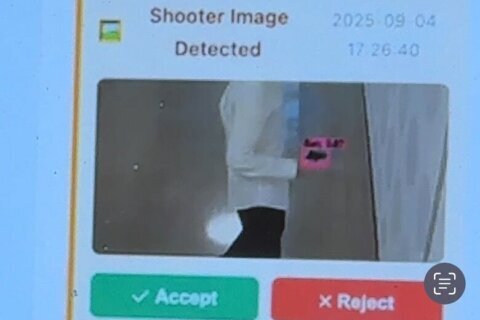Since the March 2020 fatal shooting of a Potomac, Maryland, man by a Montgomery County Police officer, the use of no-knock warrants has been restricted by law in the county.
In July, the Montgomery County Council passed a legislative package that included a number of use-of-force reforms, including how and when no-knock warrants could be used.
Council member Will Jawando was among the lawmakers pushing for the change. The case of Breonna Taylor — a 26-year-old woman who was shot and killed in her home in March as police in Louisville, Kentucky, executed a no-knock warrant — was among the events that moved the council to act.
The law enacted by the county council doesn’t eliminate no-knock warrants but it does restrict their use.
“If there’s a hostage situation or if there’s some sort of extreme case where people are in imminent danger, of course police can enter,” Jawando said.
But Jawando said he doesn’t want to see the no-knock warrants used in drug cases where the threat of violence is not a factor.
Locally, a Silver Spring family contacted a lawyer after they say police “needlessly” handcuffed a couple and their teenage daughter and held them at gunpoint in September of 2019. Police searched the house while executing a no-knock warrant for a man who lived in the family’s home. The man was sought on drugs and firearms charges.
In March of 2020, 21-year-old Duncan Lemp of Potomac was shot and killed by a Montgomery County Police SWAT officer as police carried out a no-knock warrant at his home. The officer in that case was cleared in a report released by the county’s state’s attorney’s office on New Year’s Eve.
Lemp’s family said that he was asleep when in his bed next to his girlfriend when the police raid began, but prosecutors concluded that he had been pointing a rifle and represented a threat to the safety of the officers.
An online fringe anti-government movement which falls under the umbrella of what is known as the “Boogaloo Boys,” has used Lemp’s death to galvanize members. Rene Sandler, an attorney who represents Lemp’s family, said the family disputes any ties between Duncan and the anti-government group.
In the county’s law, Jawando said, no-knock warrants could still be used in “exigent” circumstances, when other strategies are deemed to risky. Those other circumstances include cases involving child abuse, child pornography, domestic abuse, firearms cases or suspected terrorism.
“We also have asked for additional reporting information when these are requested and what the outcome is,” Jawando said.
Part of his concern was how often police used no-knock warrants. Police had argued that the warrants had been used for 40 years and in that time, there had been just 3 shootings — including the fatal shooting of Lemp in March of 2020.
In 2019, 140 search warrants were executed in the county by SWAT officers, which included 108 no-knock warrants, according to testimony during a county council committee hearing in July.
The Associated Press contributed to this report.
Editor’s note: This story has been updated to reflect that Duncan Lemp was not a member of an anti-government movement, according to his family’s attorney.








